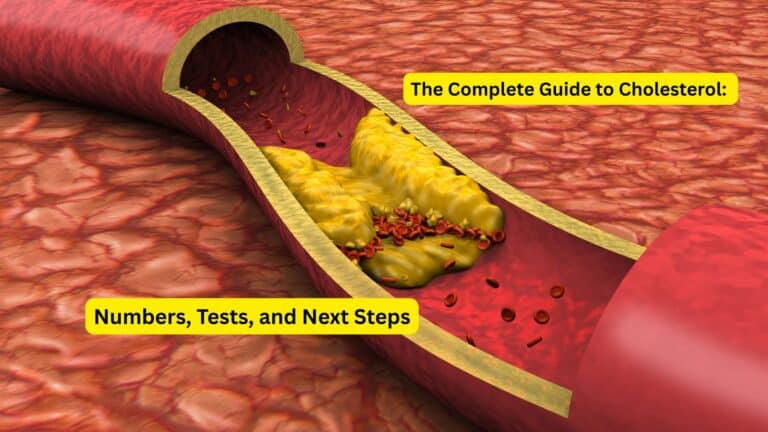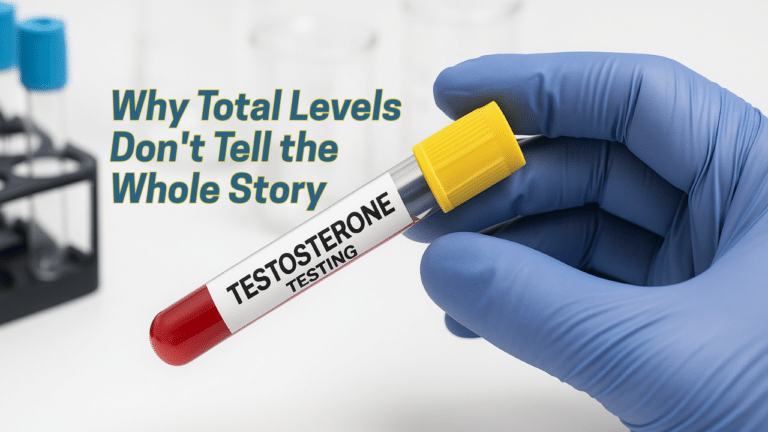Your immune system serves as your body’s most sophisticated defense network, continuously patrolling for threats and eliminating abnormal cells before they can develop into cancer. This remarkable biological surveillance system operates through complex mechanisms that can recognize and destroy potentially dangerous cells, making it a crucial ally in cancer prevention. Understanding how to optimize your immune function through lifestyle choices, medical interventions, and preventive strategies can significantly enhance your body’s natural ability to prevent cancer development.
How the Immune System Defends Against Cancer
The immune system’s approach to cancer prevention mirrors its response to infections, employing a two-phase strategy that combines immediate and long-term protective mechanisms. Your body’s defenses work around the clock to identify and eliminate cells that have undergone harmful mutations before they can establish tumors. This process, known as immune surveillance, represents one of your most powerful tools in the fight against cancer.
The Role of Innate vs. Adaptive Immunity
Your immune system operates through two complementary branches that work together to prevent cancer. The innate immune system provides the first line of defense, with natural killer (NK) cells serving as rapid responders that can immediately identify and destroy abnormal cells without prior exposure. These cells patrol your body continuously, using sophisticated recognition mechanisms to detect cellular changes that might indicate malignancy.
The adaptive immune system builds upon this initial response by developing highly specific and long-lasting protection. T lymphocytes, particularly cytotoxic T cells, learn to recognize specific cancer-associated antigens and mount targeted attacks against tumor cells. This adaptive response not only eliminates current threats but also creates immunological memory, providing enhanced protection against similar abnormal cells in the future.
Cytotoxic T Cells and NK Cells in Tumor Destruction
Cytotoxic T lymphocytes and natural killer cells represent the elite forces of your immune system’s anti-cancer arsenal. These specialized cells possess the ability to directly contact and destroy tumor cells through multiple mechanisms, including the release of toxic substances that induce cancer cell death. Research demonstrates that higher infiltration of these immune cells in tumor tissue correlates with better patient outcomes, highlighting their critical role in cancer defense.
NK cells offer a particularly important advantage because they can act immediately without requiring prior sensitization to specific antigens. These cells constantly survey your tissues and can rapidly eliminate cells that have lost normal cellular markers or begun expressing stress signals associated with malignant transformation. Their quick response capability makes them especially valuable in preventing the early stages of cancer development.
Why Immune Surveillance Is Crucial
Immune surveillance functions as your body’s quality control system, continuously monitoring cellular health and eliminating potentially dangerous mutations before they can progress. This process becomes increasingly important as we age, since the likelihood of cellular mutations accumulates over time, making robust immune function essential for long-term cancer prevention.
The effectiveness of immune surveillance depends on the immune system’s ability to distinguish between healthy cells and those that pose a threat. This recognition process involves complex molecular interactions that allow immune cells to identify abnormal proteins, altered surface markers, and other signs of cellular dysfunction that might indicate malignant potential.
Challenges: How Cancer Evades the Immune System
Despite the immune system’s sophisticated defense mechanisms, cancer cells have evolved clever strategies to avoid detection and destruction. Understanding these evasion tactics helps explain why some cancers develop despite a functioning immune system and highlights the importance of maintaining optimal immune function. These mechanisms represent ongoing battles between your body’s defenses and potentially dangerous cells.
Mechanisms of Immune Evasion
Cancer cells employ multiple strategies to escape immune detection, including the release of immunosuppressive molecules that dampen the immune response in their immediate vicinity. New research has revealed sophisticated mechanisms by which cancer cells actively suppress immune function, making it more difficult for cytotoxic cells to mount effective attacks. These cells can also alter their surface proteins to become less recognizable to immune cells or express inhibitory ligands that essentially tell immune cells to stand down.
Another common evasion strategy involves creating a protective microenvironment around developing tumors. Cancer cells recruit supportive cells and create conditions that favor their growth while simultaneously suppressing immune function in the local area. This creates a sanctuary where malignant cells can multiply without interference from the body’s natural defenses.
Tumor Microenvironment and Chronic Inflammation
The tumor microenvironment plays a crucial role in determining whether cancer cells survive or are eliminated by immune responses. Chronic inflammation can paradoxically both promote cancer development and impair immune function, creating conditions that favor tumor growth. This inflammatory state can suppress the activity of cytotoxic T cells and NK cells while promoting the growth of regulatory immune cells that further dampen anti-cancer responses.
Understanding this relationship between inflammation and immune function helps explain why lifestyle factors that reduce chronic inflammation are so important for cancer prevention. By maintaining healthy inflammatory balance, you can help ensure that your immune system operates at peak efficiency in its surveillance and elimination functions.
Lifestyle Strategies to Strengthen Immunity
Your daily choices have a profound impact on immune system function and your body’s ability to prevent cancer development. Research consistently demonstrates that specific lifestyle modifications can enhance immune surveillance, improve the function of cancer-fighting cells, and reduce the risk of malignant transformation. These evidence-based strategies offer practical ways to optimize your immune system’s protective capabilities.
Exercise and Its Effects on Immune Cell Mobilization
Physical activity represents one of the most powerful tools for enhancing immune function and cancer prevention. Regular exercise increases the mobilization of cytotoxic immune cells and contributes to tumor growth suppression, with studies showing that even moderate activity can significantly improve immune surveillance. Exercise appears to enhance the circulation and effectiveness of NK cells while also promoting the development of memory T cells that provide long-term protection.
The benefits of exercise extend beyond simple immune cell activation. Physical activity helps reduce chronic inflammation, improves circulation to allow better immune cell trafficking, and enhances the overall efficiency of immune responses. Regular moderate exercise, such as brisk walking for 30 minutes most days of the week, can provide significant immune benefits without the potential suppression that might occur with extremely intense training.
Diet Rich in Antioxidants, Vitamin D, and Immune-Supportive Nutrients
Nutritional choices directly influence immune system function and cancer prevention capabilities. A diet rich in antioxidants helps protect immune cells from oxidative damage while supporting their ability to function effectively. Colorful fruits and vegetables provide essential vitamins, minerals, and phytochemicals that enhance immune responses and help maintain the genetic stability of healthy cells.
Vitamin D deserves special attention for its crucial role in immune function and cancer prevention. This nutrient helps regulate immune responses, supports the function of various immune cell types, and may directly influence cancer cell growth and survival. Many adults have insufficient vitamin D levels, making testing and appropriate supplementation important components of immune optimization strategies.
Stress Reduction and Quality Sleep
Chronic stress and poor sleep quality can significantly impair immune function and increase cancer risk. Stress hormones like cortisol can suppress immune cell activity, reduce the effectiveness of immune surveillance, and promote inflammatory conditions that favor cancer development. Implementing stress management techniques such as meditation, deep breathing exercises, or regular relaxation practices can help maintain optimal immune function.
Quality sleep is equally important for immune health, as many crucial immune processes occur during rest periods. During sleep, your body produces and releases important immune signaling molecules, consolidates immunological memory, and repairs cellular damage that accumulates during waking hours. Prioritizing 7-9 hours of quality sleep each night supports these essential immune maintenance functions.
Avoiding Immunosuppressive Behaviors
Certain lifestyle choices can directly impair immune function and increase cancer risk. Smoking represents one of the most significant immunosuppressive behaviors, damaging immune cells and impairing their ability to detect and eliminate abnormal cells. The toxic compounds in tobacco smoke also directly damage DNA and promote the development of cancerous mutations.
Excessive alcohol consumption similarly suppresses immune function while promoting inflammation and cellular damage. Limiting alcohol intake to moderate levels or avoiding it entirely helps maintain optimal immune system performance. Other factors that can impair immunity include poor nutrition, inadequate sleep, chronic stress, and exposure to environmental toxins.
Vaccines and Medical Interventions
Medical science has developed powerful tools to enhance immune-based cancer prevention, with vaccines leading the way in preventing virus-associated malignancies. These interventions work by training your immune system to recognize and respond to specific cancer-causing agents before they can establish infections or tumors. Understanding and utilizing these preventive medical interventions represents a crucial component of comprehensive cancer prevention strategies.
HPV and Hepatitis B Vaccines as Cancer Prevention
Vaccination against cancer-causing viruses represents one of the most successful applications of immune-based cancer prevention. The HPV vaccine has substantially reduced cervical and other HPV-related cancers worldwide, demonstrating the power of training the immune system to prevent cancer before it starts. This vaccine works by stimulating the production of antibodies that can neutralize HPV infections before they can cause the cellular changes that lead to cancer.
Similarly, the Hepatitis B vaccine prevents liver cancer by protecting against chronic hepatitis B infection, which is a major risk factor for hepatocellular carcinoma. These vaccines essentially provide your immune system with advance training, allowing it to mount rapid and effective responses against cancer-causing viruses before they can establish persistent infections or promote malignant transformation.
Immunoprevention Therapies and Checkpoint Inhibitors
Beyond traditional vaccines, medical researchers are developing sophisticated immunoprevention strategies that enhance the immune system’s ability to detect and eliminate early cancer cells. Immune checkpoint inhibitor therapies have improved survival in various cancers by restoring immune recognition, and researchers are now exploring their potential for preventing cancer in high-risk individuals.
These advanced therapies work by removing the molecular “brakes” that sometimes prevent immune cells from attacking cancer cells effectively. By blocking inhibitory signals, checkpoint inhibitors can enhance the immune system’s natural surveillance and destruction capabilities, potentially preventing the progression from precancerous lesions to invasive cancer.
Role of Genetic Risk Assessments and Personalized Interventions
Understanding your genetic risk profile allows for more targeted and effective immune-based prevention strategies. Genetic testing can identify individuals who carry mutations that increase cancer risk, enabling healthcare providers to recommend enhanced screening, prophylactic interventions, or lifestyle modifications tailored to specific risk factors.
Personalized medicine approaches are increasingly incorporating immune system assessment and optimization into cancer prevention protocols. By evaluating individual immune function markers, vitamin D levels, and genetic risk factors, healthcare providers can develop customized prevention strategies that maximize each person’s natural cancer defense capabilities.
Emerging Research in Immunoprevention
The field of cancer immunoprevention continues to evolve rapidly, with researchers exploring innovative approaches to enhance immune-based cancer prevention. These cutting-edge developments offer promising new strategies for strengthening immune surveillance and preventing cancer development. Understanding these emerging approaches helps illustrate the exciting potential for improved cancer prevention in the coming years.
Neuro-Immune Interactions in Tumor Response
Recent research has revealed fascinating connections between the nervous system and immune function that influence cancer development and prevention. Studies explore neuro-immune crosstalk and its influence on tumor microenvironment and immune response, opening new avenues for therapeutic interventions. The nervous system can influence immune cell function through various signaling pathways, potentially affecting the immune system’s ability to detect and eliminate cancer cells.
This research suggests that factors affecting nervous system health, such as stress management, adequate sleep, and mental wellbeing, may have more direct impacts on cancer prevention than previously understood. Understanding these connections may lead to integrated approaches that optimize both neurological and immune function for enhanced cancer prevention.
Novel Vaccines Under Development
Researchers are developing next-generation cancer prevention vaccines that go beyond protecting against cancer-causing viruses. These innovative approaches include vaccines designed to enhance immune recognition of cancer-associated antigens, therapeutic vaccines for high-risk individuals, and personalized vaccines based on individual genetic and immune profiles.
Some experimental vaccines aim to train the immune system to recognize and eliminate cells expressing common cancer markers before they can develop into tumors. Others focus on enhancing immune memory against previously treated cancers, providing long-term protection against recurrence. These approaches represent significant advances in using immune system training for comprehensive cancer prevention.
Advances in Immune Checkpoint Therapies for Early Detection and Prevention
The success of immune checkpoint inhibitors in cancer treatment has led researchers to explore their potential for cancer prevention, particularly in high-risk populations. Research into mechanisms and complexities underlying cancer cell immune evasion continues to reveal new targets for preventing immune escape before cancers become established.
Future applications might include using checkpoint inhibitors to enhance immune surveillance in individuals with genetic predispositions to cancer or those with precancerous lesions. These preventive approaches could potentially stop cancer development at its earliest stages by ensuring robust immune responses against abnormal cells.
Frequently Asked Questions
How does the immune system prevent cancer?
The immune system prevents cancer through a sophisticated surveillance process that continuously monitors your body for abnormal cells. Immune cells, particularly cytotoxic T lymphocytes and natural killer cells, can recognize and destroy cells that have undergone malignant transformation before they can form tumors. This process involves both innate immunity, which provides immediate responses, and adaptive immunity, which creates specific, long-lasting protection against cancer-associated antigens.
Can lifestyle choices improve immune cancer surveillance?
Yes, lifestyle factors significantly influence immune function and cancer surveillance capabilities. Regular physical activity enhances immune cell mobilization and effectiveness, while a nutrient-rich diet provides essential compounds that support immune cell function and reduce inflammation. Quality sleep, stress management, and avoiding immunosuppressive behaviors like smoking and excessive alcohol consumption all contribute to optimal immune surveillance against cancer cells.
What vaccines reduce cancer risk?
Several vaccines effectively prevent cancer by protecting against cancer-causing viruses. The HPV vaccine prevents cervical, anal, and other cancers caused by human papillomavirus infections, while the Hepatitis B vaccine protects against liver cancer by preventing chronic hepatitis B infections. These vaccines work by training your immune system to recognize and neutralize these viruses before they can cause the cellular changes that lead to cancer development.
Are there medical therapies to boost immunity against cancer?
Medical science is developing various approaches to enhance immune-based cancer prevention. Immune checkpoint inhibitors, originally developed for cancer treatment, are being explored for prevention in high-risk individuals by removing molecular brakes that limit immune responses. Additionally, researchers are developing cancer prevention vaccines and personalized immunotherapy approaches that enhance the immune system’s ability to detect and eliminate precancerous cells.
Can genetic testing help tailor cancer prevention strategies?
Genetic testing provides valuable information for personalizing cancer prevention approaches, including immune-based strategies. By identifying genetic mutations that increase cancer risk, healthcare providers can recommend enhanced screening, prophylactic interventions, and lifestyle modifications tailored to individual risk profiles. This personalized approach allows for more targeted immune optimization strategies and can guide decisions about preventive medical interventions.
Conclusion
Optimizing your immune system for cancer prevention represents one of the most promising and empowering approaches to maintaining long-term health. By understanding how your immune system naturally defends against cancer and implementing evidence-based strategies to enhance its function, you can significantly strengthen your body’s ability to prevent malignant transformation. The combination of healthy lifestyle choices, appropriate medical interventions, and emerging immunoprevention therapies offers unprecedented opportunities to harness your immune system’s protective power.
The journey toward optimal immune health requires a comprehensive approach that addresses nutrition, physical activity, stress management, and preventive medical care. Regular monitoring of immune function markers, vitamin D levels, and genetic risk factors can help personalize your cancer prevention strategy and ensure you’re maximizing your natural defenses.
Ready to take control of your immune health? Walk-In Lab provides convenient, affordable testing options to assess your immune function, vitamin D status, and genetic risk factors that influence cancer prevention. Order your immune health assessment today and take the first step toward optimizing your body’s natural cancer defense system with personalized, science-based strategies.
This content is for informational purposes only and is not a substitute for medical advice. Consult a healthcare provider for personalized guidance on cancer prevention and immune system optimization.






